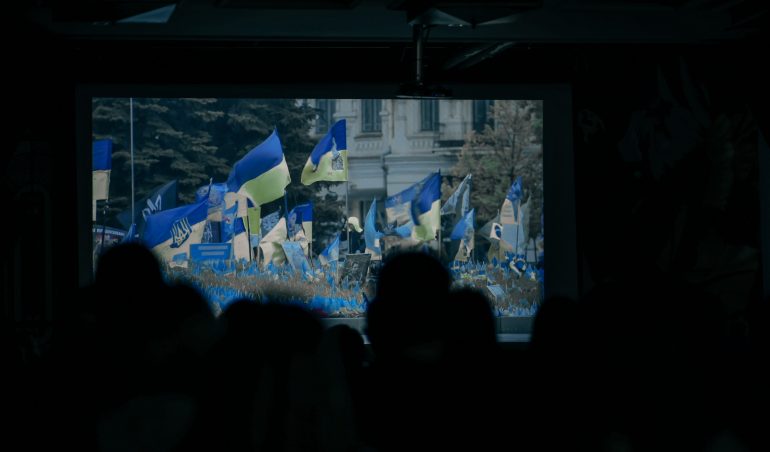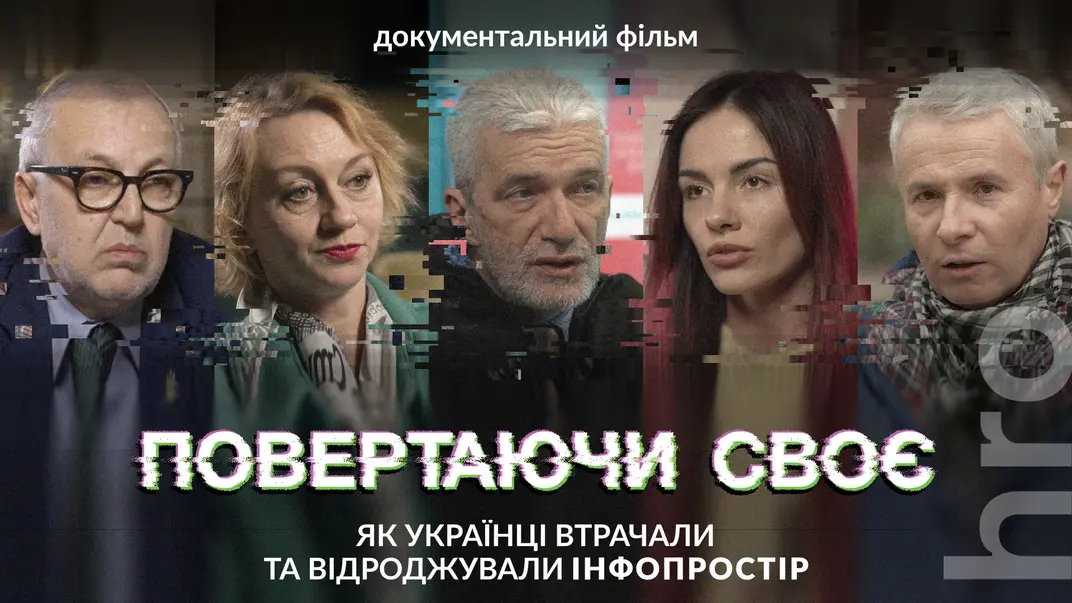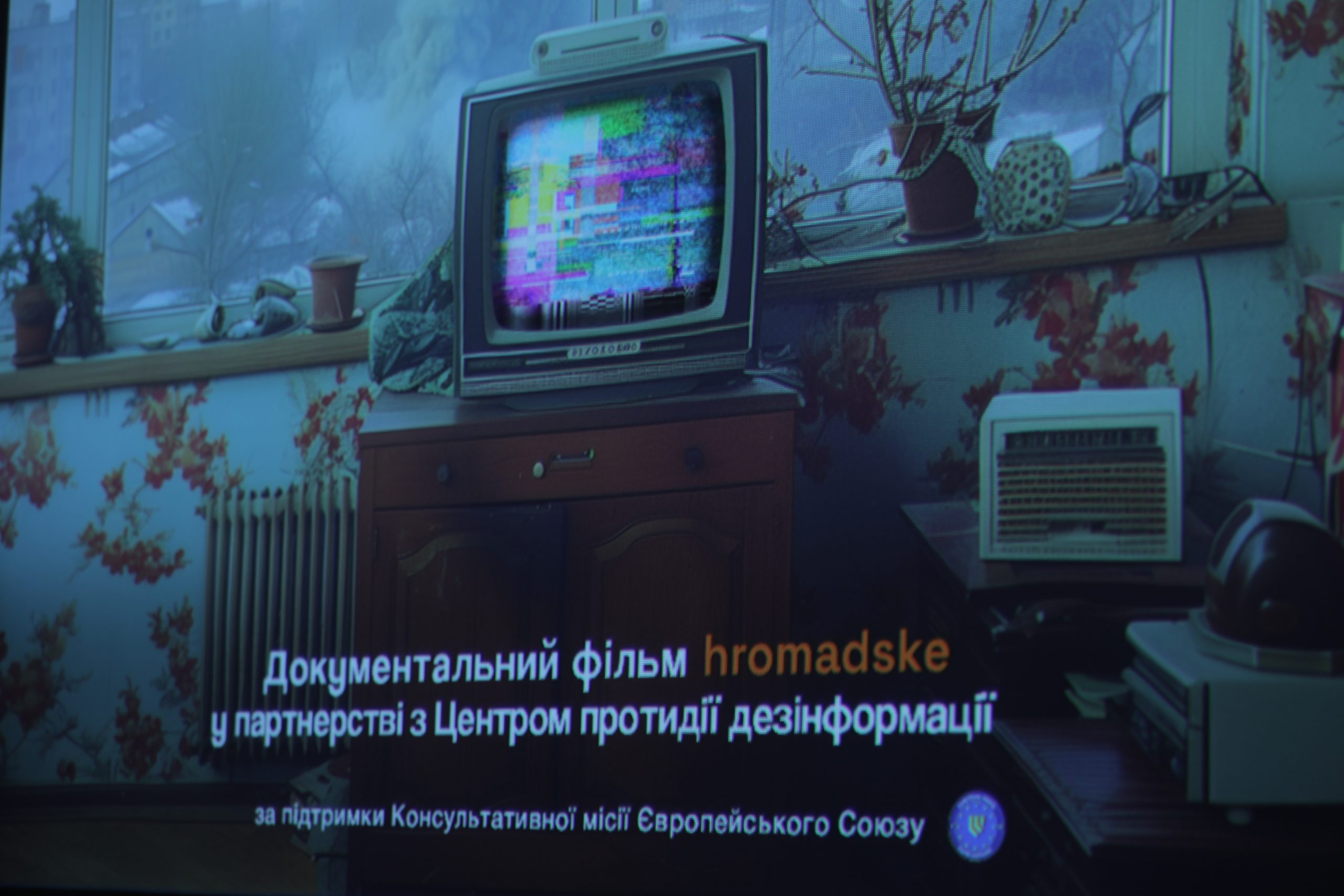Taking back what’s ours: EUAM supports a documentary on how Ukrainians lost and revived their information space
May 22, 2024
The new documentary “Taking Back What’s Ours: How Ukrainians Lost and Revived the Information Space” explores the development of manipulative technologies and Russian narratives in the Ukrainian information space. The project was created with the support of the European Union Advisory Mission (EUAM) Ukraine by the Ukrainian media channel hromadske in partnership with the Center for Countering Disinformation.
In the film, experts in the field of countering disinformation, representatives of civil society organisations, media professionals, historians and journalists analyse Russian manipulative technologies in the Ukrainian information space in different periods of Ukraine’s modern history and their impact on the present day, based on real cases from different perspectives.

The documentary covers post-Soviet times – the period of formation of the Ukrainian media space, the search for its own identity, the 2000s – a period characterised by a large number of joint Ukrainian-Russian media projects, widespread Russian narratives, the Revolution of Dignity and the beginning of the war, the fight against Russian manipulation, and the present – a full-scale invasion.
Johannes Ruger, Head of Public Affairs at the European Union Advisory Mission Ukraine, said:
“This cooperation is extremely important for understanding and counteracting the information threats that Ukraine has faced and continues to face. We are pleased to support a project that not only documents historical events, but also provides specific tools to protect the information space. This is critical for preserving national identity and security.”

The documentary includes the personal accounts of a long list of Ukrainian cultural figures including singer MamaRika, actresses Rimma Zyubina and Irma Vitovska, comedian Borys Barskyi, journalists and TV presenters Andriy Kulikov, Konstantin Grubich, as well as Valeriy Kopiyka, director of the Institute of International Relations of the Kyiv National University or Yuriy Romanenko, professor at the Kyiv National University and the National Academy of Sciences, amongst others. Andriy Kovalenko, Head of the Centre for Countering Disinformation and one of the experts featuring in the documentary, commented the project as follows:
“For centuries, Russia has been deliberately destroying the Ukrainian nation, our statehood, culture and identity. It was not only military aggression and occupation of our lands, but also an information war that affected all aspects of our lives. Russian propaganda has systematically tried to eradicate Ukrainian identity, so our film aims to document these manifestations of information aggression against Ukraine and preserve the truth for future generations. We have to remember our history to protect ourselves in the future.”
The documentary was premiered on 15 May 2024 in Kyiv and is now available on hromadske channel in Ukrainian with English subtitles. The film’s author and director Olexiy Khoroshenkiy described his experience of creating the documentary:
“This is a particularly important project for hromadske because we are media professionals ourselves and we feel especially responsible for building an information sphere in Ukraine that is free from external influences. This is a responsibility to several generations of our colleagues who, at the dawn of independence, revived Ukrainian culture and built up a truly Ukrainian media. Unfortunately, Russia has been trying to absorb our identity all these years, primarily through its influence in the cultural and information field. At some point, we were almost absorbed. However, we found a way to revive, but at a very high price. In this work, we tried to explore the path we have already taken and analyse how it affects the present. The film is based exclusively on interviews with the characters — the conclusions are for the audience to make.”
Watch the documentary (61 min): Taking Back What’s Ours: How Ukrainians Lost and Revived the Information Space


